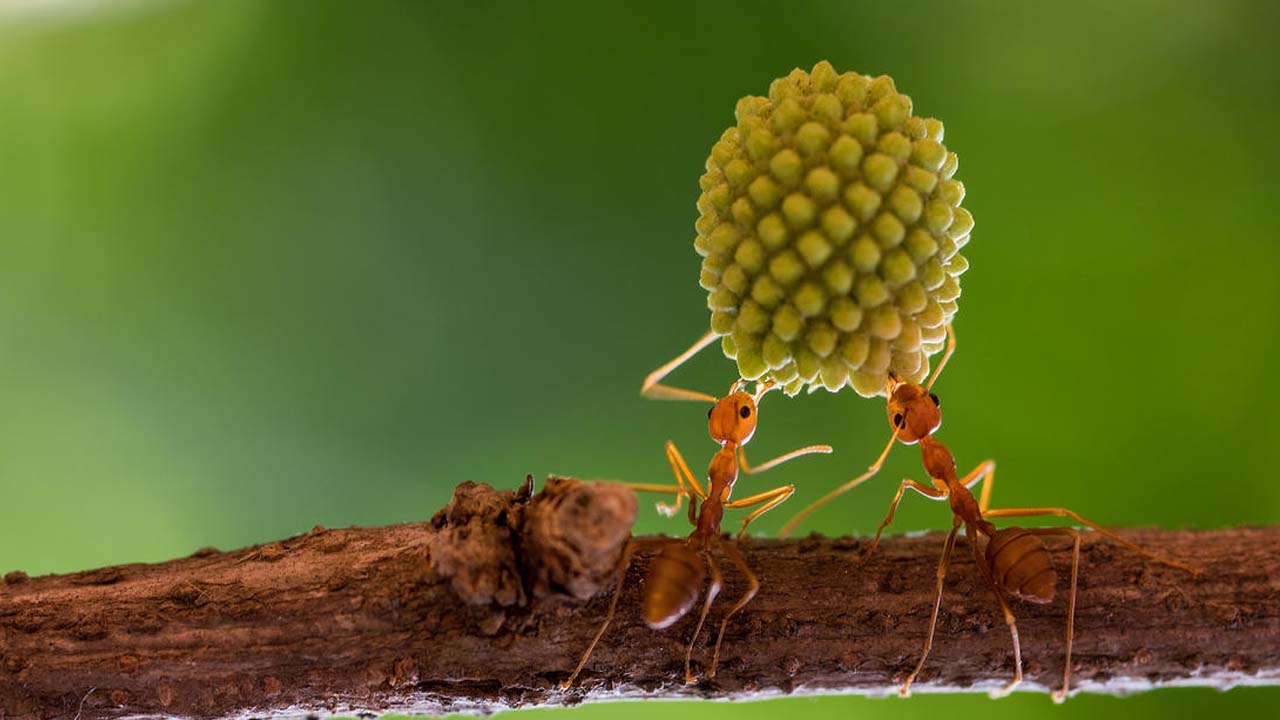20 Quadrillion Ants Exist Across The Earth, Researchers Find
Researchers have worked out an estimate for the number of ants crawling around Earth — and the total is "astounding."Thursday, September 22nd 2022, 3:46 am
Researchers have worked out an estimate for the number of ants crawling around Earth — and the total is "astounding."
Scientists at the University of Hong Kong say there are 20,000,000,000,000,000 — that's 20 quadrillion — of the critters around the globe. The combined weight of those ants is more than all of the wild birds and mammals on the planet.
The weight is also equal to about one-fifth of the total weight of humans. Scientists say the findings, published Monday in the peer-reviewed Proceedings of the National Academy of Sciences, are "conservative."
Ants are present in nearly all ecosystems around the planet, thanks to their extremely social nature. At the moment, there are more than 15,700 named species and subspecies, but there are many others not yet named.
To come up with the total, researchers analyzed 489 studies from around the world, spanning all continents and major habitats. Other scientists had the tedious task of directly observing and counting ants through traps and leaf samples — and then their research was combined to reach the 20,000,000,000,000,000 estimate.
Scientists say that's between two and 20 times higher than prior estimates.
Researchers also wanted to work out the total weight of all the ants. They concluded an estimated "biomass" of about 12 million tons of carbon. But carbon only makes up about half the dry weight of an ant — meaning that the total mass is likely even higher.
Researchers found ants are not evenly distributed around the planet; rather, they peak in the tropics, highlighting the importance of those regions as the climate changes. They were also abundant in both forests and arid regions.
All of these ants, of course, serve a crucial role in our ecosystems. The insects aerate the soil, spread seeds, break down organic material and create habitats for other animals. They are also an important part of the food chain, scientists note, and can be more effective than pesticides for farmers.
Some animal species are unable to survive without ants, including some birds, which rely on them to find prey, and countless plant species that either feed or house the insects in exchange for protection or spreading of seeds.
But they are under severe threat, due to habitat destruction and fragmentation, chemical use, invasive species and climate change.
"It's in humanity's interest to monitor ant populations," scientists say. "Counting ants is not difficult, and citizen scientists from all over the world could help investigate how these important animals are faring at a time of great environmental change."
Scientists admitted that there were several limitations to the findings, however. The locations from their samples were not evenly distributed in terms of geographic regions, and most were collected from the ground, leaving much to be learned about populations in trees or underground.
But researchers still hope these findings can provide a critical baseline from which ant populations can be monitored in the future, amid concerning environmental changes.
First published on September 20, 2022 / 12:17 PM
© 2022 CBS Interactive Inc. All Rights Reserved.
More Like This
September 22nd, 2022
October 9th, 2024
August 19th, 2024
Top Headlines
January 15th, 2025
January 15th, 2025
January 14th, 2025
January 14th, 2025









